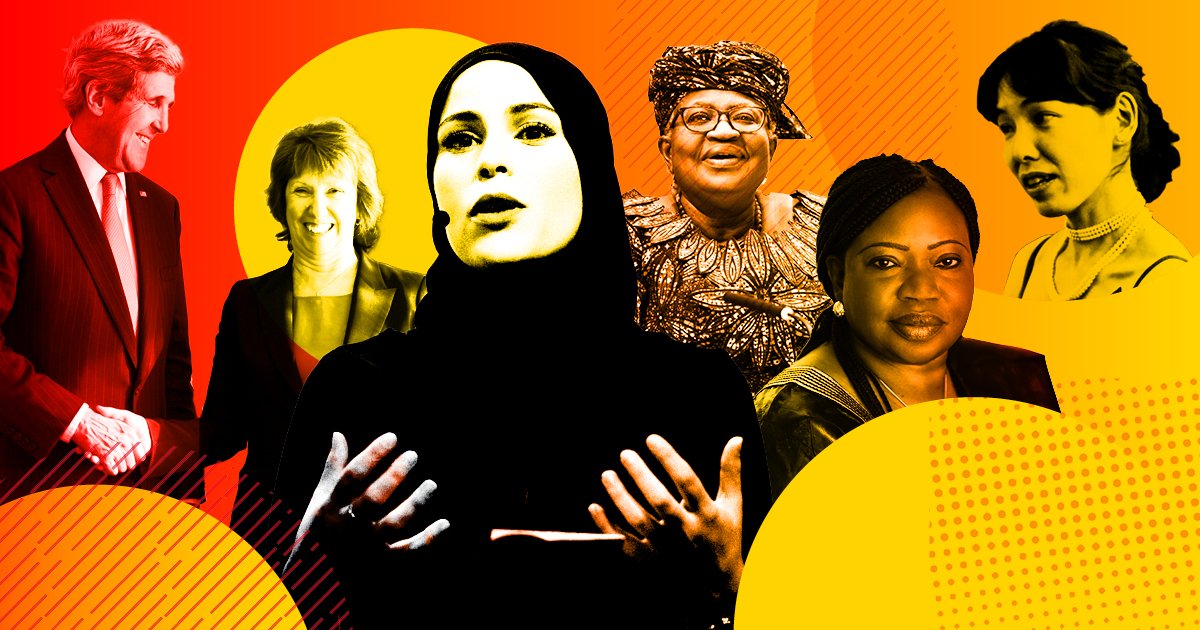Diplomacy without women is diplomacy without wisdom. Every year, June 24 marks the International Day of Women in Diplomacy to celebrate women’s contributions and leadership in global affairs. But let’s not forget, this isn’t just a ceremonial toast to a few names in high offices but a moment to reflect on the reality. Why are women still largely absent from the negotiation tables where the fate of a country is to be decided? Why are such rooms still crowded with men?
Why the Day Matters
Since ages, diplomacy has been considered an area of male-domination, a place where women are hardly seen. A place which is ruled by men, a place where only men hold the decision making power but not so long anymore.
From conflict resolutions to climate negotiation, it has always been men taking the lead but it’s time for a change. Over a few decades, courageous and capable women have challenged this male domination in diplomacy and that’s why this day matters. This day is to realize the importance of women in diplomacy and to break the barriers that restrain women’s involvement in diplomatic missions.
The International Day of Women in Diplomacy was first recognized by the United Nations in 2022 to serve as a dual purpose of celebration and a call to action.
The Numbers that Haunt
- In 2000, no woman was seated at the Security Council table, and the number of women ambassadors to the UN was in the single digits
- According to report by UNDP, In 2023, only 20% of ambassadors globally were women, with Africa falling below this average at 18%
- Results show that in 2024, only 21% of ambassadors and permanent representatives are women, indicating that women remain underrepresented in top diplomatic posts
- According to new global data collected by UN-Women through the Women in Peace Processes Monitor, in 2023, women made up only 5 per cent of negotiators, 9% of mediators and 19% of signatories to peace and ceasefire agreements.
- Between 2015 and 2023, only 22% of the Permanent Representatives of the Member States represented in the Security Council were women. In 2024, 5 of the 15 (33 per cent) Security Council Members have a woman Permanent Representative. Reported by UNSC.
Initiatives Towards Betterment
The International day of Women in Diplomacy is a living example of what Resolution 1325 demands: more women in negotiations, leadership and peace. The 1325 Resolution on Women, Peace and Security (WPS) agenda was an initiative focused at encouraging women in decision making and conflict resolutions, the resolution had three goals:
- To increase representation and participation of women at all decision making levels in national, regional, and international institutions and mechanisms for conflict prevention, conflict management, conflict resolution, and peacebuilding
- To bring a gender perspective to the planning and implementation of peace operations and peace negotiations (gender sensitive training of personnel, an expanded role of women as peacekeepers etc)
But the question here is, have we achieved that betterment? Did Resolution 1325 adopted in 2000 have become a path for women to sit at negotiations tables? Though the improvement is less overall but it hasn’t stopped, women are now challenging the gender roles that portray them as mere humans incapable of decision making and making a way for themselves to be part of diplomatic missions, to be ambassadors and to sit at the negotiation table.
Pakistani Women in Diplomacy
Pakistan’s diplomatic history is no different, dominated by men. Yet against all these odds, Pakistani women have carved out a significant space in the country’s foreign policy and international representation.
A bright example of that is a Major Samia Rehman who was rewarded with the UN Medal being acknowledged as one of the most efficient peacekeepers in the Democratic Republic of Congo. Sherry Rehman, who served as Ambassador to the United States, and Tehmina Janjua, the first woman Foreign Secretary of Pakistan.
Maleeha Lodhi also achieved recognition as Ambassador to the United Nations. Moreover, Muniba Mazari was appointed as UN Women Pakistan’s first National Ambassador and the list is never ending. Recently Hina Rabbani, Sherry Rehman and Tehmina Janua were part of the Pakistan Diplomatic Mission in Washington D.C, London and Brussels.
Pakistani women have been the forefront of diplomatic engagements but progress is still needed as there is still underrepresentation of women.
A Seat for Women at Every Table
Why not a woman to lead peace talks in Palestine? Why not let a woman from the Global South chair a major climate summit? Why not end the idea of linking diplomacy with masculinity. The corridors of diplomacy still echo the voices of men and women’s voices are often unheard.
It’s time to fight the systematic challenges that try to contain women. Why did Sweden ditch its “feminist foreign policy” that was aimed at representation, resources and rights? This shows that on one hand we might be trying to come up with initiatives that increase women representation but it’s not enough as we also have to break the chains, stand against the systematic challenges that fuel this masculinity in diplomacy.
On this International Day of Women in Diplomacy, remember that diplomacy is not truly representative until every voice is heard, especially those historically excluded. This day is not just to celebrate but to make diplomacy inclusive.
An IR student whose interest lies in diplomacy and current affairs and a part time debater




